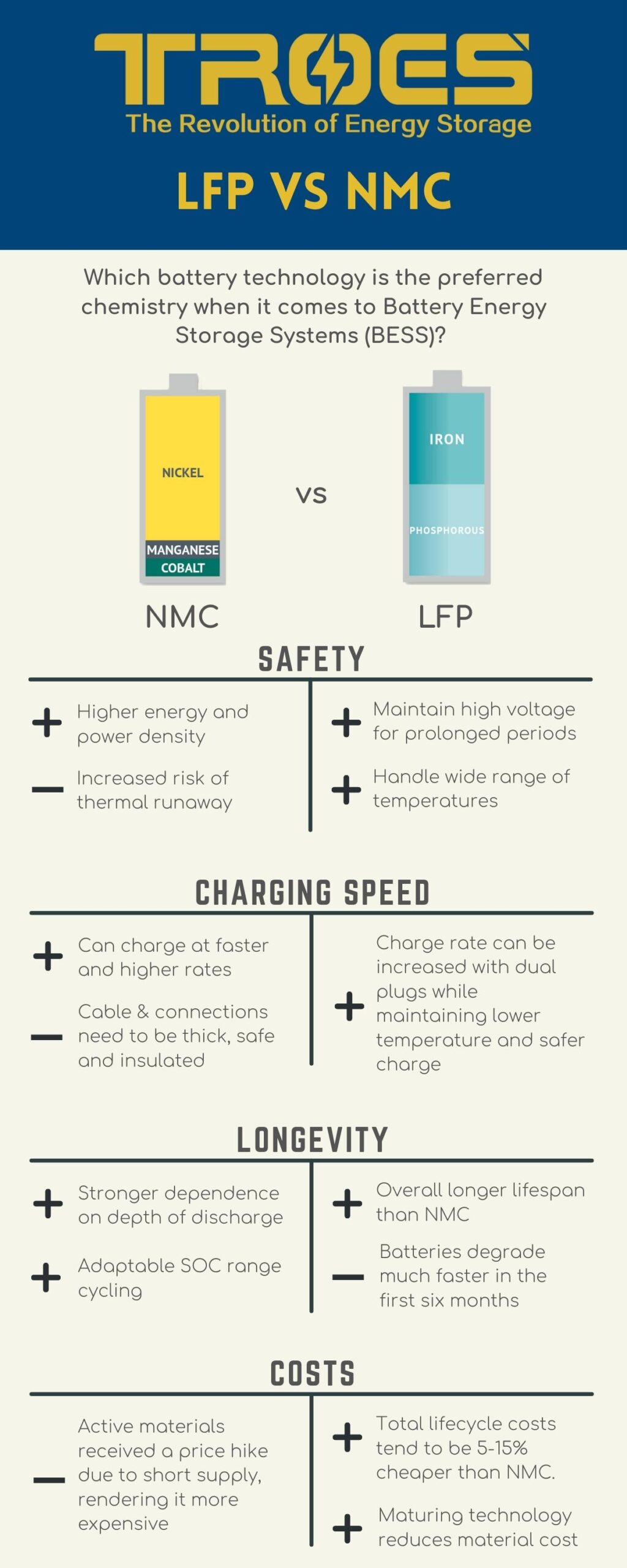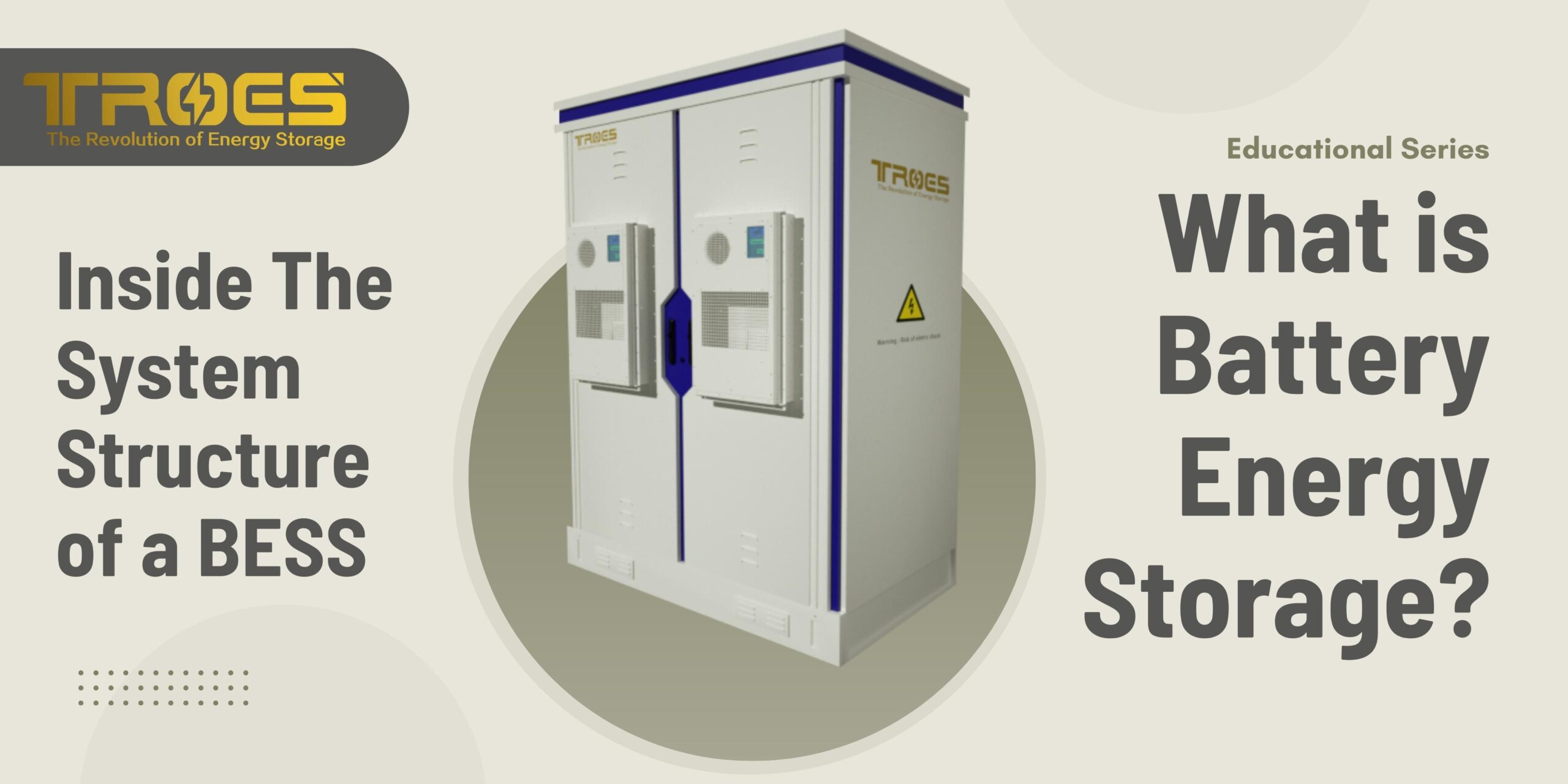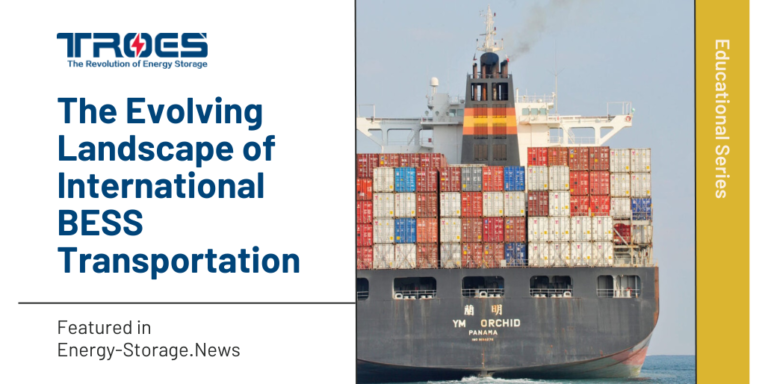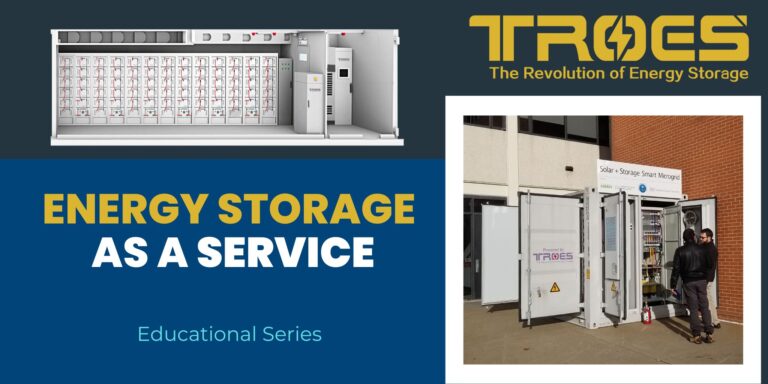LFP vs NMC: Best Battery for Energy Storage?

The brief history of the ESS market has been driven by EV batteries. Price for EV batteries have dropped down by 85% since the 2010s due to the EV revolution, with NMC enjoying bulk of the demand for lithium-based batteries. This was more noticeable in 2018 and late 2019 when the demand for NMC reached an all-time high and the resulting shortage of NMC batteries allowed for LFP battery vendors, already plenty in China to tap into the market with competitive pricing and lead times.

About the Battery Chemistry
NMC is a relatively new technology compared to LFP which has been around since the 90s. Both are lithium-based batteries as they generate electricity through chemical reactions of lithium, but the difference lies in the choice of cathode material in the battery cell. Lithium, in its element form, is unstable and thus requires a cathode combination to keep it stabilized as a source of lithium ions in a battery. Cathode material in a NMC battery is a combination of nickel, manganese, and cobalt while in an LFP battery it is iron and phosphate.
To choose the correct battery for your energy storage project, it is crucial to compare the batteries pros and cons. In this blog, we compare the most important traits for batteries to determine which is the better battery chemistry. We will be looking at battery safety, charging speed, longevity, and cost. The comparison below provides an overview of NMC vs LFP battery technology.

Safety
The cobalt content in NMC allows the batteries to have relatively higher energy or power densities than LFP, meaning lesser footprint and thus are good choices for automotive application. However, the pitfall of having higher energy densities (higher voltage) in a smaller footprint is that it increases the risk of thermal runaway, wherein temperature of the battery system increases continuously until some event. LFP batteries on the other hand are more tolerant when kept at higher voltage conditions for prolonged periods. These batteries handle far wider variations in temperatures than other lithium-ion chemistries as well.
Charging Speed
Charging speed is a selling point often used as a case for NMC when compared to LFP. NMC batteries are usually promoted as being able to charge at higher rates than LFP but the trade-off is that the cables and connectors need to be beefed up and cells are insulated individually to contain heat. On the other hand, the charging rates in an LFP system can be increased with dual plugs while maintaining much lower charging temperature and safer charge. Overall, considering the project lifecycle, charging speed is a non-issue in comparison of these batteries.
Longevity
As per recent research, LFP batteries have a longer lifespan than NMC batteries. Tests were performed at the Sandia National Laboratories on commercially available lithium cells of different chemistries with repeated charge and discharge from 0 to 100%. The results published describe LFP cells exhibiting higher cycle lifetime across all conditions tested among all lithium-based chemistries.
Costs
Previously, NMC was the cheaper alternative compared to LFP. Most recently, the rise in sustainable alternatives paired with nickel and cobalt resources become finite and more difficult to mine, LFP batteries’ capex remains more competitive than NMC ones. In general, the beginning of system integration costs for LFP tend to be 5-15% cheaper than NMCs even though the overall system life-based capex is complex to compare.
The Future of Battery Technology
The ESS market prospects for all lithium-based chemistries remain largely positive at present. Moving forward, aspects such as recycling potential will take precedence along with cost and safety for different applications of these battery chemistries. In terms of market share, LFP is poised to overtake NMC as the more prevalent energy storage battery chemistry soon with LFP market expected to grow more than 30% by 2030.






